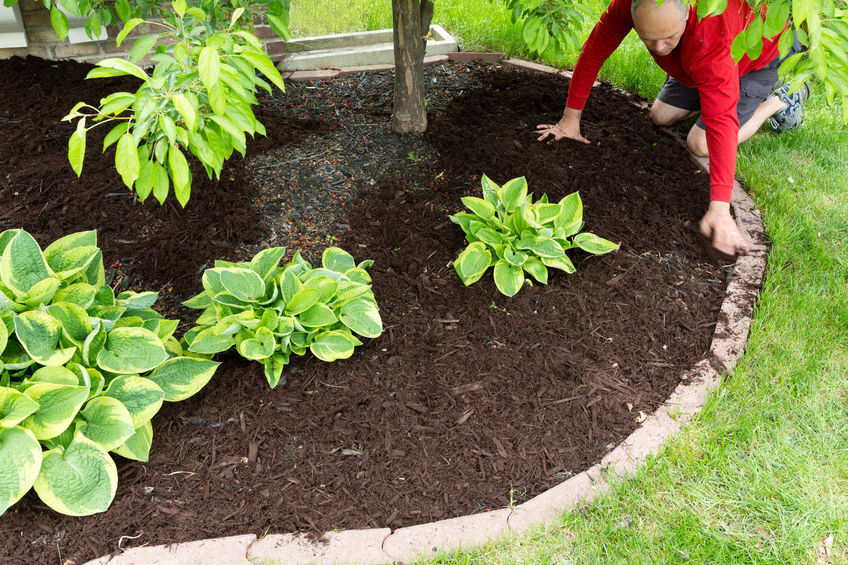


Right now is the perfect time to take care of annual mulching. Early birds are rewarded with less yard work in the summer and autumn. However, only a good mulch—whether you choose organic or inorganic—is going to do the trick. Mulching leads to efficiency because good mulch dramatically reduces weed growth while helping to retain moisture during drier months. A great mulch buffers changes in soil temperatures and helps areas that are difficult to irrigate or mow. Of course, many gardeners choose to add mulch just because of the aesthetics. Whether you’re interested in mulching to reduce erosion, optimize soil characteristics, or a combination of perks, now is the time to act.
The mulch you had during the winter helped to keep roots and soil warm. Come summer, it will do the same to keep soil cooler. Mulch helps you out because a good layer of quality mulch means you won’t have to weed, use trimmers, or mow in these areas as often. This in turn means less risk of plant damage and disease. String-trimmer damage can be severe, and it doesn’t take much to over-trim with these hand-held devices. Trimmers can also whisk away bark layers. Once protective layers are gone, plants need ample time to heal. Mulch minimizes this damage.
You can choose organic or inorganic mulch. Organic mulch decomposes slowly and improves soil aeration, drainage, and fertility. Inorganic mulches don’t offer those benefits because they don’t decompose; however, this also means they don’t need to be refreshed as often. Many gardeners think “organic mulch” when they think about mulch, and this can be a great choice for many people.
Pine bark mulch is popular, readily available, and it’s a renewable forest industry byproduct. You can choose from various particle sizes, and the natural brown color is appealing in any garden. Pine straw is also popular and available in bales. As an added bonus, pine straw binds together so it doesn’t wash away as easily as many other organic mulches. There’s also shredded wood that can be sourced from a variety of options including mixed hardwood and recycled pallets.
You can supplement your organic mulch with what you’re already creating in your yard, such as leaf litter and lawn clippings. Lose the bag option on your lawnmower and instead make use of the “debris” by using it as mulch. However, keep in mind this kind of mulch decomposes very quickly so it’s best used as a supplement to purchased mulch that’s packed with nutrients for a happy, healthy lawn.